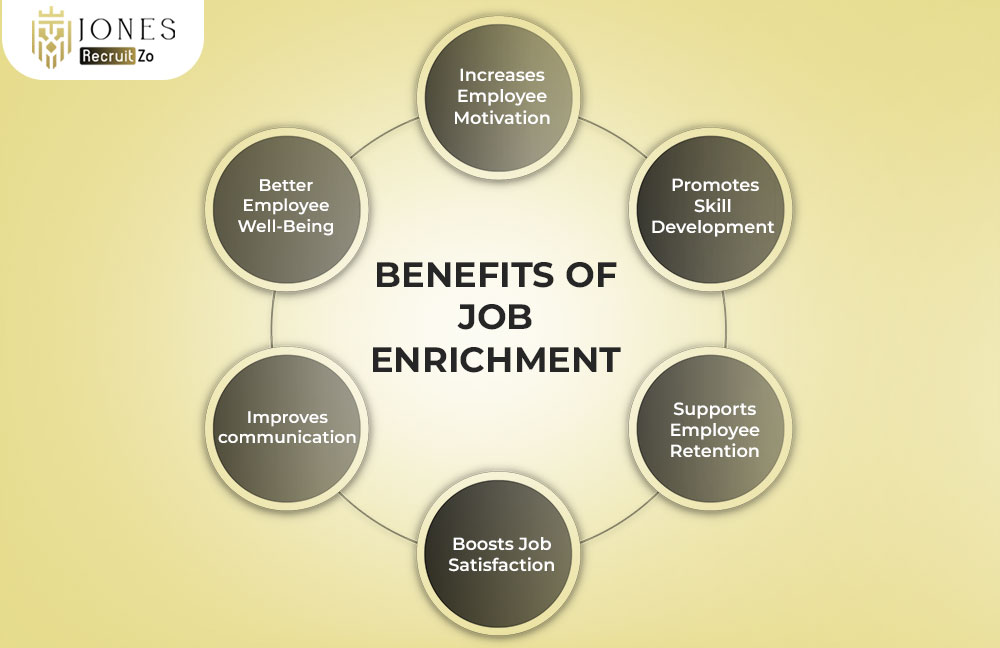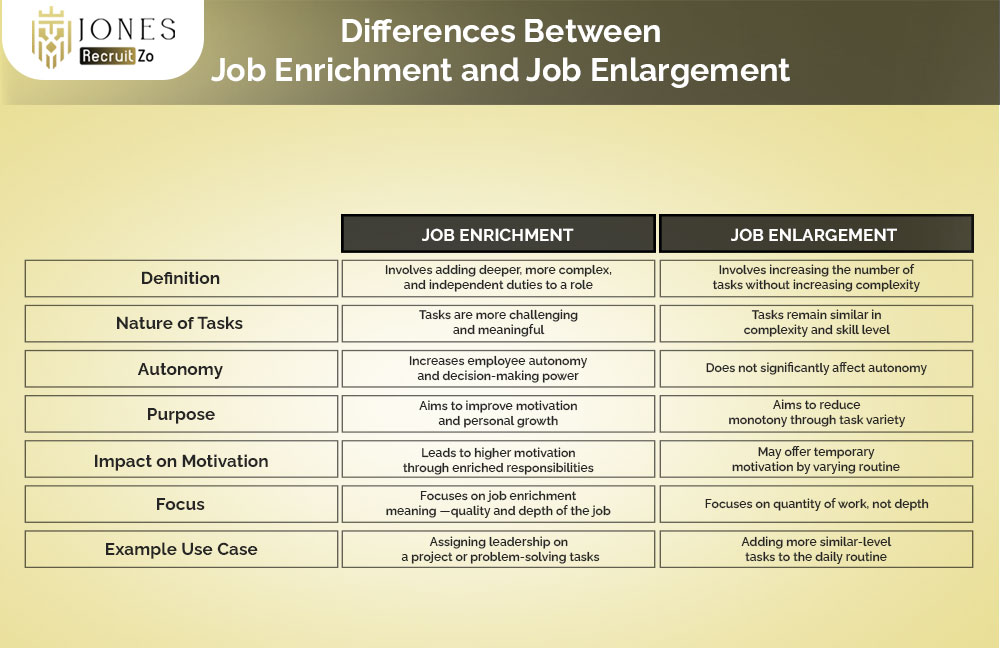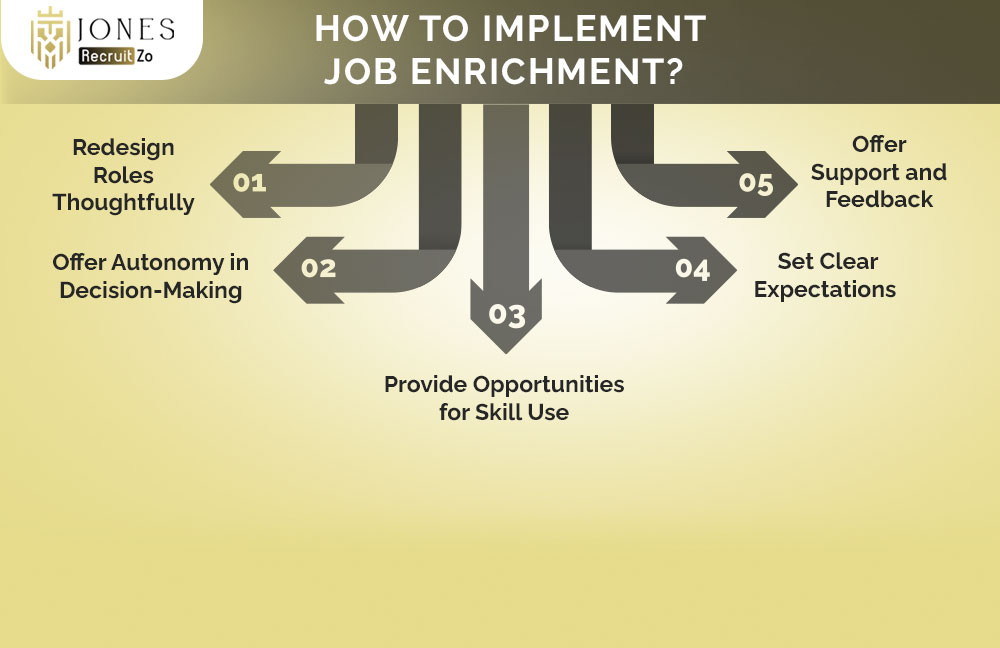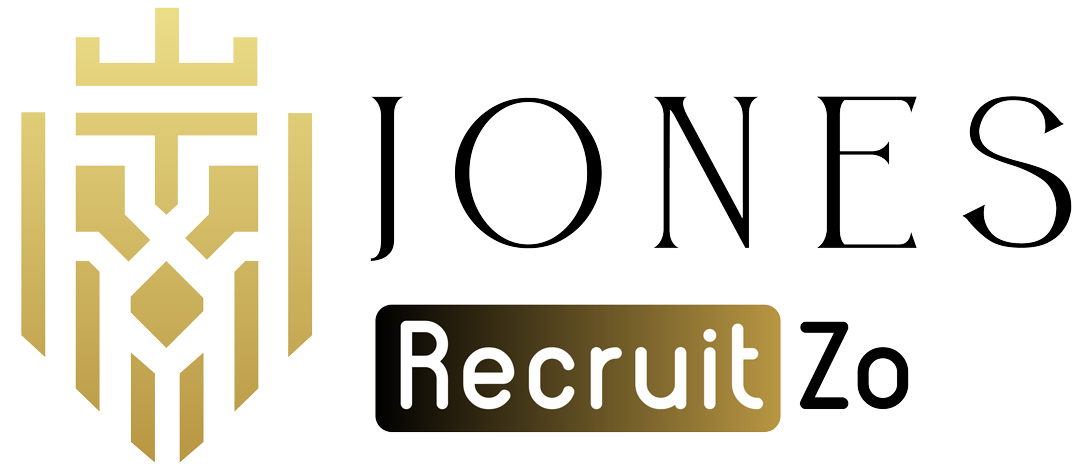What is Job Enrichment?
Job enrichment is used to improve job roles by giving the employee more control, more tasks and higher chances for growth. It means enhancing workplace interest by giving different jobs, harder chores and suggestions for improvement, all of which raise motivation. It helps explain what is job enrichment within organizational development.
Benefits of Job Enrichment

There are many ways job enrichment benefits workers: it increases motivation, helps to grow skills, improves memory, raises job satisfaction, encourages better communication and makes positions more interesting.
-
Increases Employee Motivation
Under job enrichment, people are well motivated because they are given important duties and more control over their job activities. It helps people connect, learn better and see a reason for their work. Employees gain greater satisfaction from their jobs because of these changes. Learning about job enrichment allows companies to make their workforce more inspired and effective.
-
Promotes Skill Development
An important positive effect of job enrichment is that people can learn new skills. It helps people in their jobs by giving them exposure to different types of work. In addition to helping with career development, it boosts memory and helps staff stay more productive. Job enrichment is connected to growing your skills, which is helpful for both employers and employees.
-
Supports Employee Retention
Enriching jobs means people are often more happy at work and less likely to quit. It supports deeper engagement and loyalty, which ultimately benefits employees and the company. Providing meaningful work keeps talent invested in the organization.
-
Boosts Job Satisfaction
Make a job more satisfying by increasing the employee’s duties, letting them have more say and making sure tasks are varied. Doing so encourages employees to work better and remain loyal. Key advantages include the ways it supports employees so they are happy and stay motivated.
-
Improves Communication
Job enrichment leads to better open communication because it motivates employees to care more about their jobs. Feeling empowered inspires people to work actively and express their thoughts with the group. By doing this, both teamwork and employee relationships improve while isolation is reduced.
-
Better Employee Well-Being
Improved well-being comes from offering more important tasks and the ability to learn new things at work. Working in this structure reduces the risk of burnout and makes employees happier at work. Employees get emotional and mental support from a structured job, so designing jobs is important.
Difference Between Job Enrichment vs Job Enlargement

Understanding the differences between job enrichment and job enlargement is essential. With job enrichment, deeper, trickier and more independent duties are introduced, but with job enlargement, only the responsibilities themselves change. It shows that improving a job to match intentions leads to more motivation and growth for workers.
Job Enrichment Techniques
Good job enrichment involves increasing the tasks at hand, allowing employees to make decisions, encouraging feedback, helping them grow and rewarding success—all these things make their jobs more rewarding and support their personal development.
-
Increase Task Variety
The main way to give people a better job is to increase the variety in their tasks. Changing assignments from time to time can break boredom and encourage you to be involved. Training employees supports learning and adds to their skills, both of which help them professionally and personally.
-
Offer More Autonomy
By offering job enrichment, employees can work on tasks the way they think best. It helps build both a willingness to take responsibility and extra effort. Compared with the routine aspects of job enlargement, job enrichment boosts employees’ happiness and sense of development, which is much more useful than routine tasks.
-
Provide Skill Development Opportunities
Developing employee skills is crucial for boosting jobs, helping them to use and gain new skills. They raise satisfaction on the job and help ready individuals for what is ahead. Unlike job enlargement, job enrichment concentrates on internal improvement, providing value to people who want to progress in their jobs.
-
Encourage Feedback and Recognition
Companies can motivate their workers by regularly providing feedback and recognition. When these things are done, workers know they are valued. Giving employees a chance to offer feedback improves team spirit and allows them to measure their progress in a useful job structure.
How to Implement Job Enrichment?

To implement job enrichment, recreate job roles, give employees control over certain matters, set clear goals, offer task variety and keep feedback regular.
-
Redesign Roles Thoughtfully
The way roles are changed is important for job enrichment to be successful. It allows the new responsibilities to be appropriate for each employee and helpful to the organization. Learning about job enrichment allows managers to bring about valuable changes that help employees and boost their achievements.
-
Offer Autonomy in Decision-Making
Having workers make their own decisions is essential for job enrichment. Those who are empowered show stronger ownership and a higher sense of involvement. Compared to simply adding new tasks in job enlargement, job enrichment vs job enlargement underlines that having autonomy is better for employees in changing workplaces.
-
Provide Opportunities for Skill Use
Job enrichment is about providing ways for employees to improve and use their present skills. By taking this approach, people are more interested in their work and tend to enjoy it. Giving these kinds of opportunities to employees helps them use their abilities to contribute to the success of the organization positively.
-
Set Clear Expectations
Clear goals are necessary for job enrichment to be successful. Employees recognize both their broader job tasks and the metrics they must meet. Having a clear structure supports employees in doing their job well and enjoying improved job results and enjoyment.
-
Offer Support and Feedback
Job enrichment relies on being given helpful and uplifting assistance and feedback. Thanks to them, staff members feel more assured and appreciated when handling their enlarged responsibilities. This motivates people and makes the working environment many benefit from, encouraging growth over time.
FAQs
1) What is job enrichment?
Job enrichment is used to improve job roles by giving the employee more control, more tasks and higher chances for growth. It means enhancing workplace interest by giving different jobs, harder chores and suggestions for improvement, all of which raise motivation.
2) What is the difference between Job Enrichment vs Job Enlargement?
Understanding the differences between job enrichment and job enlargement is essential. With job enrichment, deeper, trickier and more independent duties are introduced, but with job enlargement, only the responsibilities themselves change. It shows that improving a job to match intentions leads to more motivation and growth for workers.
3) How to Implement Job Enrichment?
To implement job enrichment, recreate job roles, give employees control over certain matters, set clear goals, offer task variety and keep feedback regular.
4) What are the Benefits of Job Enrichment?
There are many ways job enrichment benefits workers: it increases motivation, helps to grow skills, improves memory, raises job satisfaction, encourages better communication and makes positions more interesting.














